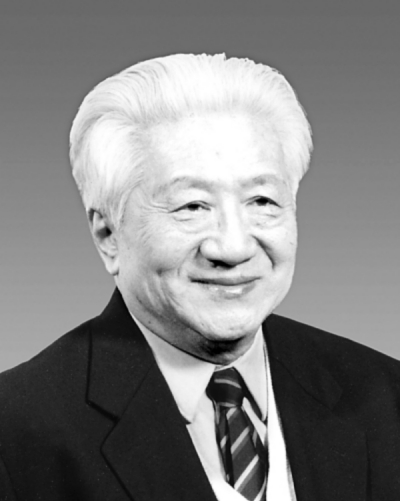
Introduction
Bishop K. H. Ting (1915-2012) was a prominent Chinese Christian leader, and just like Y. T. Wu, provided a model of patriotism and love for the church. He was the principal of Nanjing Union Theological Seminary from 1952 to 2010. Between 1980 and 1996, he served three terms as Chairperson of the Chinese Three-Self Patriotic Movement Committee and as the President of the China Christian Council. At one point, he was also the Vice Chairman of the Chinese People’s Political Consultative Conference (CPPCC) and the Chairman of the China Committee on Religion and Peace (CCRP). Bishop Ting was not only a religious leader, but also a theologian and thinker. The idea of “Theological Reconstruction” in the Chinese church was a concept he began to advocate and promote in 1998. Besides giving us a wealth of inspiration and guidance, the idea has provided an important foundation and resource for advancing the further contextualization of Christianity in China.

(Bishop K. H. Ting )
The Ideological Background of K. H. Ting
Bishop K. H. Ting’s theological thinking had deep Christian roots. He grew up in an Anglican family and was influenced by Anglicanism from childhood. In the Anglican tradition, state and religion were closely related, reflected very much in the close connection between the Anglican Church and the British state. He also believed that faith was not just a private matter, but one that involved state and society. As he used to say, “theology is a form of refined politics.” The Anglican Church attaches great importance to liturgical worship and values the true, the good, and the beautiful in religion, believing that all these come from God. His Anglican-influenced faith background provided a good basis for him to value service to one’s country, to cultivate the right political identity, and to advocate for the tolerance of religious beliefs, respect for all goodness and the promotion of inter-religious harmony.

(By: Dayne Topkin)
Bishop Ting’s theological ideas were derived from two great eras: one was an era of transition from the old to the new in which the Communists worked hard to build a new China. In earlier days, Bishop Ting had worked at the Shanghai YMCA (Young Men’s Christian Association), where he had close contact and connection with the Communists and was deeply influenced by Y. T. Wu, who held a favorable view of the Communists and saw them as a progressive force. Later, he went to Geneva and served as an executive staff of the World Student Christian Federation, where he came into frequent contact with communist intellectuals from Eastern Europe. For the most part, he never hesitated to express his approval of Marxism and the social ideas of the Communists — with the exception of atheism. These encounters led to profound shifts in his religious thinking, including his endorsement of socialist society.
…………
 Click here to download the full text
Click here to download the full text

(By: Aaron Burden)
About author:
Rev. Dr. Chen Yilu, Vice President of CCC, and Executive Vice-President of Nanjing Union Theological Seminary.
Editor: Xiao Tang